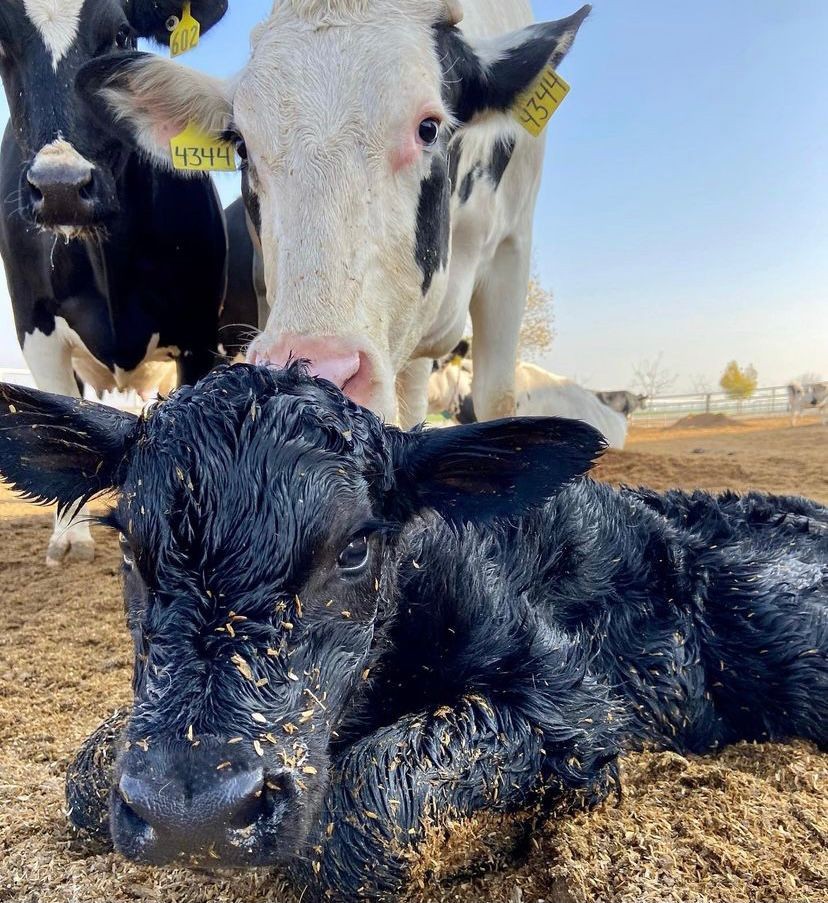Make the most of beef-on-dairy calves
"Sexed semen has changed the dairy landscape," said Dan Schaefer, an animal science professor emeritus at the University of Wisconsin-Madison, during the May Hoard's Dairyman webinar. "The technology of sexed semen enables more rapid genetic progress in the dairy herd."
The question, he said, is what to do with the extra cow matings no longer needed to produce heifer calves. "The goal, of course, would be to add value to the surplus calves," he said in his webinar presentation, titled "Capturing full value for Holstein and crossbred steers."
One way to create a more valuable calf is to cross dairy cows with beef sires, producing a first-generation animal that would qualify for the Certified Angus Beef premium.
Beyond a black hair coat, Schaefer said other desirable characteristics include modest or better marbling and superior muscling. In all, there are 10 quality specifications in the Certified Angus Beef program. While both dairy and crossbred steers can produce a quality meat product, it takes more than just breeding Holstein cows to any beef semen.
"This is an amazing challenge to produce, in the F1 generation, progeny that meets the Certified Angus Beef standards. That's a huge challenge in one generation," Schaefer noted.
Best options for Holsteins and Jerseys When selecting beef sires to breed to Holstein cows, Schaefer said to pick a bull that is homozygous black and homozygous polled. Select sires with a frame size of 5 to 5.5 on a 9-point scale. Look for a ribeye area in the top 20% of the breed, a marbling score in the top 20%, and calving ease in the top 50% of the breed.
For Jerseys, Schaefer again said to look for sires that are homozygous black and polled. Aim for a frame size of 6 to 6.5 to add a bit of size to the progeny. Target top 20% for ribeye and marbling and top 50% for calving ease.
"Aim to produce an F1 animal that is more than simply a black calf," Schaefer emphasized. "If it won't qualify for Certified Angus Beef, it's just a black Holstein or black Jersey. Then there is no reason to value that animal greater than a straight bred Holstein or Jersey bull calf."
When it comes to marketing these beef-on-dairy crosses, Schaefer advised producers to sell them young or wait until they are finished.
"For the Holstein by a beef bull calf, the easiest profit is realized by selling the 100-pound calf," he said. "It is challenging to get added value from the sale of those F1 progeny when they are marketed as feeder cattle. Therefore, I will recommend these beef-on-dairy progenies are sold as young calves or that ownership is maintained until they are sold as finished cattle."

Photo Credit: Jessica Pereira
Upcoming Events
NYSDEC How to Get Certified Course
March 3, 2026 : NYSDEC How to Get Certified Course
Ellicottville, NY
NYSDEC training course in preparation to take the pesticide applicator exam.
From Data to Dollars: Making Data-driven Decisions to Increase Farmers Market Success
March 3, 2026
The Cornell Agricultural Marketing Research Program and Penn State University are excited to present this new, 6-week course as part of Cornell's Farmers Market Research Project. The course is for farmers with experience selling at farmers markets who wish to increase their earnings through management and marketing practices.
Cornell Organic Field Crops & Dairy Conference
March 6, 2026
Waterloo, NY
Farmers, researchers, educators, and agricultural service providers from across the Northeast are invited to the 2026 Cornell Organic Field Crops & Dairy Conference, held Friday, March 6, 2026, from 8:00 a.m. to 4:30 p.m. at the Lux Hotel & Conference Center in Waterloo, N.Y.
Co-hosted by New York Soil Health and Cornell CALS, the annual conference brings together leaders in organic grain, dairy, and livestock systems to share practical tools, new research, and farmer-tested strategies to support resilient and profitable organic production.
Announcements
No announcements at this time.





